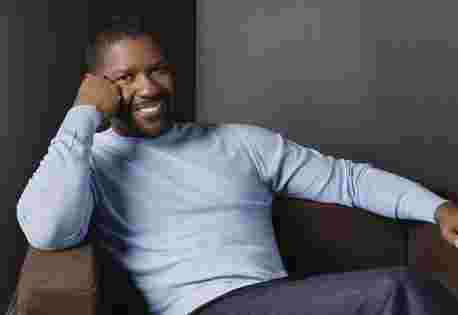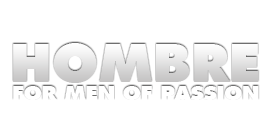HOMBRE Exclusive: DENZEL WASHINGTON: Say Hello to the Bad Guy
20 May 2012 by Francisco Romeo in Celebrities, DVD, Fame, Film, Films, General, Home, Profile, Television, Theater

Known as one of our generation’s greatest actors, Denzel Washington continues to excel in roles that test his mental and physical mettle. In his latest film “Flight,” opening this Friday November 2, he plays one of his most challenging roles. This follows the action packed, non-stop action thriller released earlier this year, “Safe House.” During our exclusive interview the two time Academy Award winner shares the challenges of “Flight,” “Safe House,” his return to South Africa and his predilection for going against the grain.
H: Do you have more fun playing the bad guys?
Denzel Washington: The next picture I made after Safe House comes out at the end of the year and it’s called “Flight.” It’s about an alcohol, drug addicted pilot who crashed a plane but saved a lot of lives. It was the most intense film I’ve done probably in twenty years. I guess it’s a cliché to say bad guys are more fun to play because you can say anything and get away with it. Sometimes when you are a good guy, you are sort of trapped, you can’t say bad things. Even when you play a real person like Steven Biko, you are sort of stuck within those confines… umm, so yea bad guys do have more fun (laughs).
HOMBRE: Speaking about your earlier film this year, “Safe House;” What are some things you learned off screen that you were able to use for your role in “Safe House”?
Denzel Washington: A few years ago, prior to 9/11, I made a movie called “The Siege” where I did a lot of research on the FBI and CIA and I was amazed at that time at how little information they shared with each other, so nothing
surprises me.
H: Tell us about the fight scenes in the film.
DW: We trained with this French guy, Oliver, who really worked us hard. And we had the luxury of time. We had to train for three or four months before we got to do those fights at the end. And the fights were nasty.
H: How did you mentally prepare for the role?
DW: There’s a book I read called ‘The Sociopath Next Door.’ I thought most sociopaths were violent when in fact they are not. Sociopaths want to win, no matter what.
Some sociopaths use pity… ‘I just can’t do it like you’ and you go ‘no, no, you
are alright.’ And now I got you in a weak position feeling sorry for me. I read
about one sociopath who used cowardice. There was one sociopath that would
steal things in the post office and will get there early the next day because
he just loved the chaos he created; he wanted to see how everybody was trying
to figure things out. They just want the feeling of power.
I just took that and as I was going through the script before the shooting, I
had to try to find the way to win in every situation no matter what. Like the
scene at the soccer stadium. He was even willing to act like a scared little
girl to get away and then he turns around and kills…without giving away too
much. A sociopath would do anything to win, anything…

H: You were tortured by being locked in the trunk of a car and having a towel
over your face while water is being poured on your head; were those two of your
real fears faced in the film?
DW: No, I’m not claustrophobic and the car wasn’t moving (laughs). It didn’t
bother me. The water boarding was close to real and I wanted to get into it and
see how it really feels. And I’ll tell you, you’ll give up the answer. Once you
get caught with water in your breath… and you know there’s more coming, you
are in trouble…you try to hold your breath… and water is filling up your
mouth…you give up the answers.

H: This was the second time South Africa plays a central theme in your films,
what changes did you see?
DW: When we shot ”Cry Freedom” I wasn’t even allowed into South Africa,
Well, I could go, but I wasn’t going to leave. I had death threats at that
time. So we shot in Zimbabwe. In 1995 I had the privilege and the honor to have
breakfast with Desmond Tutu and lunch with Mr. Mandela. They came to my house
in California on the same day.
There has been a tremendous amount of change. You have another whole generation
from when Mr. Mandela got out of prison in 1990. You got twenty year olds that have
only heard about it. But at the same time I saw a lot of psychological damage.
I met a woman there…a very fair skinned woman who interestingly enough
studied psychology and lived by the coast. Her mother was black, her father was
Jewish and her mother had to act like she was a maid when in fact they were
married. In order to live in that neighborhood they kept the charade for 20
years. The psychological damage to her and to her daughter must be tremendous.
So there will continue to be psychological scars for years to come. But Cape Town
is like Santa Monica on steroids. One of the most beautiful towns you’ve ever
seen but it’s still set up the old way and ten miles inland you see the poor
townships.
H: Do you have more fun playing the bad guys?
DW: The next picture I made comes out at the end of the year and it’s called “Flight.”
It’s about an alcohol, drug addicted pilot who crashed a plane but saved a lot
of lives. It was the most intense film I’ve done probably in twenty years. I
guess it’s a cliché to say bad guys are more fun to play because you can say
anything and get away with it. Sometimes when you are a good guy, you are sort
of trapped, you can’t say bad things. Even when you play a real person like Steven
Biko, you are sort of stuck within those confines… umm, so yea bad guys do have
more fun (laughs).









